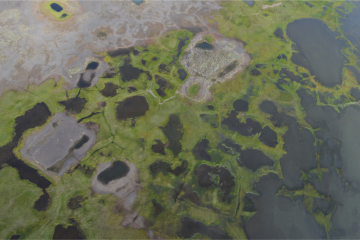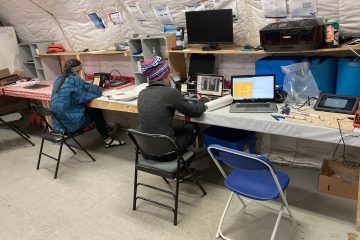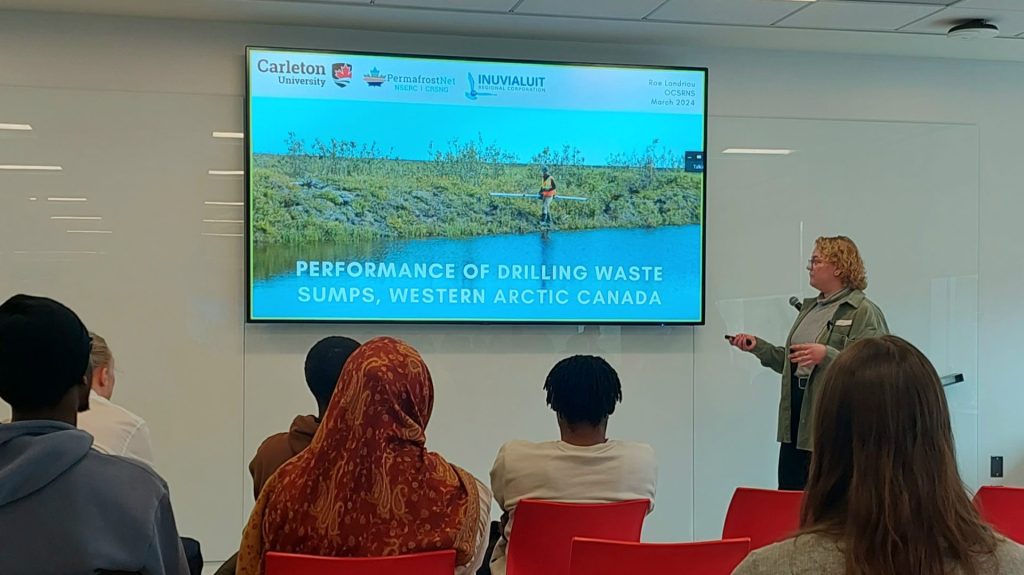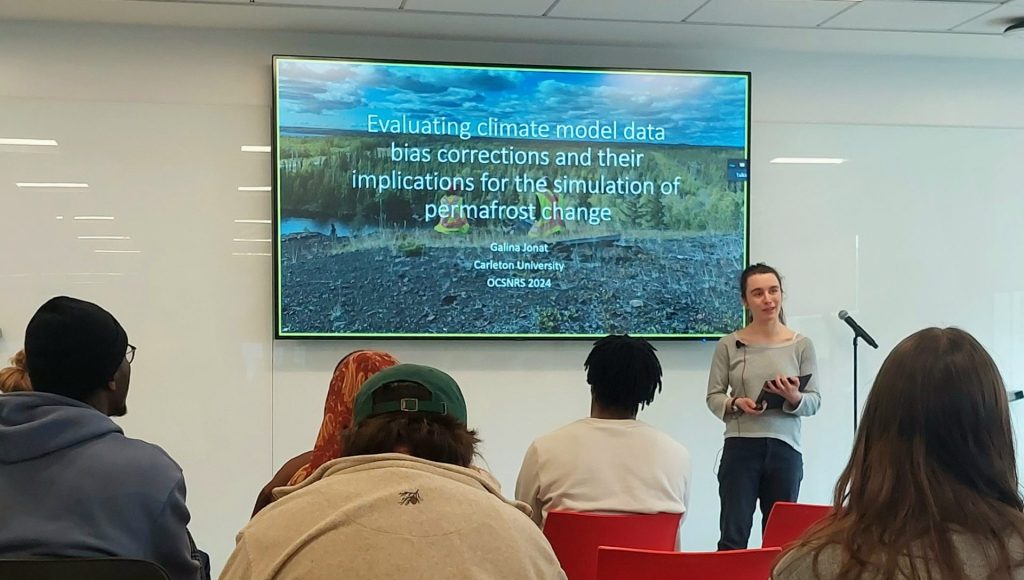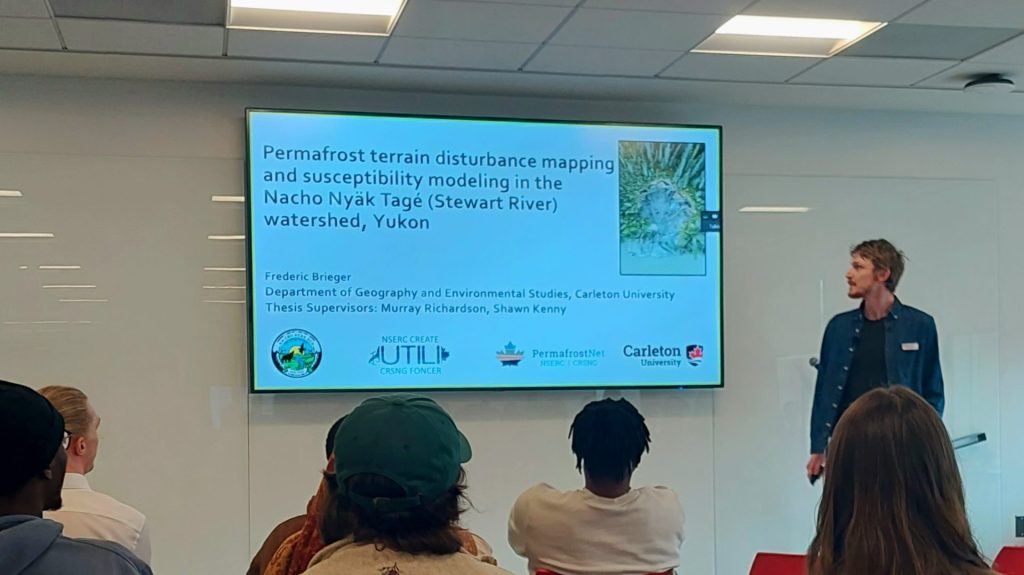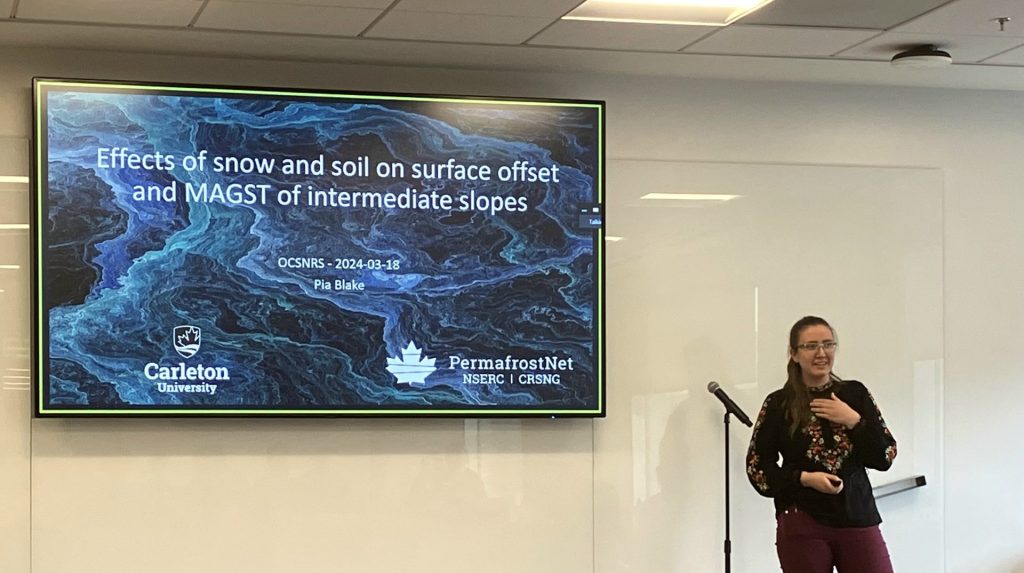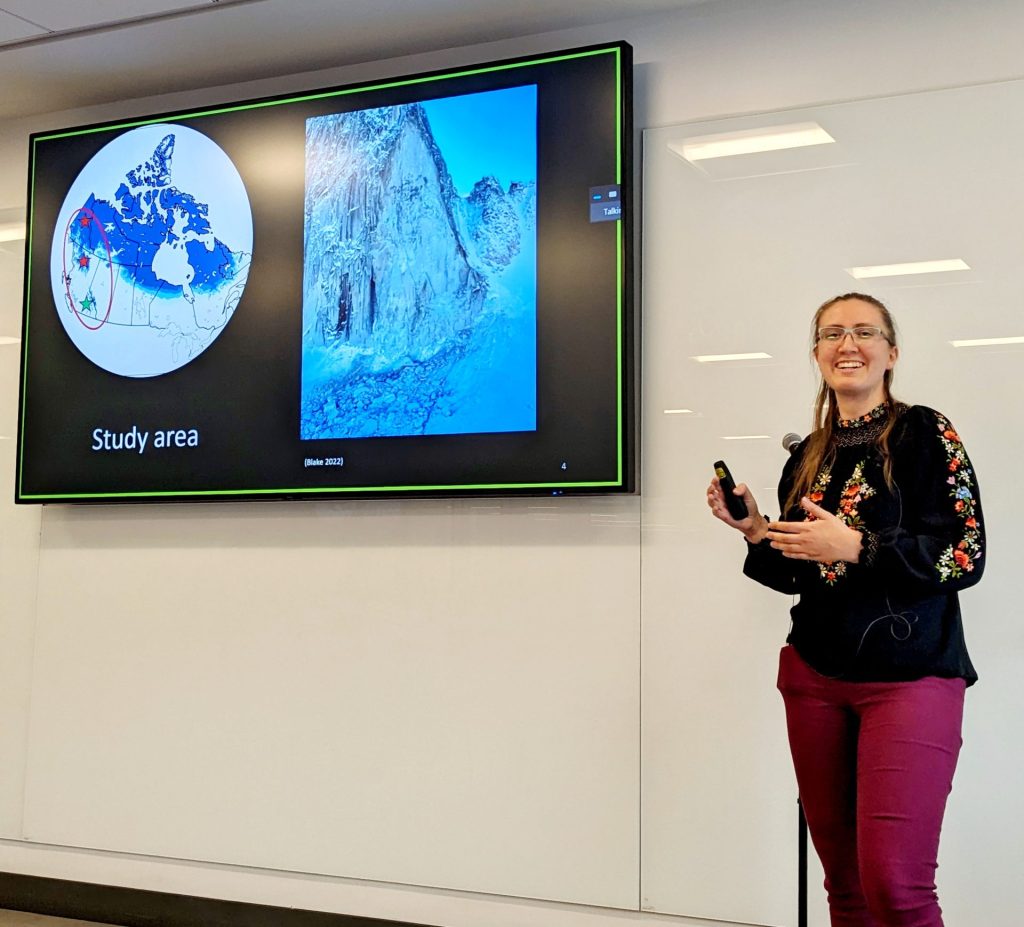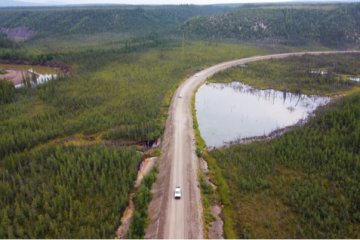Rae Landriau will be presenting Performance of Drilling Waste Sumps, Western Arctic Canada.
Date: 16 October 2024
Time: 13:00-14:00 Eastern Time
Location: Zoom (details are posted in our Teams site).
Petroleum resource exploration and development has occurred in the Northwest Territories since the 1920s. Freezing-point depressants, mainly potassium chloride, were added to drilling fluids to facilitate drilling into permafrost. Disposal of these fluids was typically in large man-made pits (sumps). Sumps were excavated in permafrost, with the intention that frozen ground would contain the fluids indefinitely. Climatic warming in northwest Canada has raised the temperature of near-surface permafrost, increasing the potential for failure of sumps in the region. Using electro-magnetic surveys, ground conductivity on and off sumps can be collected and analyzed to detect the presence of these fluids and determine if they have migrated.

